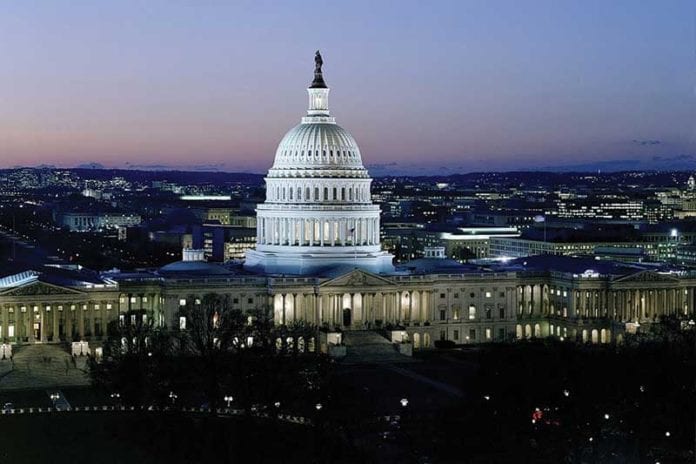This year's extraordinary presidential campaign is taking a toll on American workers, some of whom report feeling stressed, argumentative and less productive because of political discussions on the job, according to a survey released today by the American Psychological Association.
More than 1 in 4 younger employees reported feeling stressed out because of political discussions at work, and more than twice as many men as women said political talk is making them less productive, according to the survey from APA's Center for Organizational Excellence. The "Politics in the Workplace: 2016 Election Season" survey was conducted online on APA's behalf by Harris Poll from Aug. 10-12, 2016, among 927 U.S. adults who are employed full or part time.
Men were more likely than women, and younger workers (ages 18-34) were more likely than older generations, to have experienced negative consequences of political discussions at work this election season, the survey found. This includes having difficulty getting work done, producing lower-quality work and being less productive overall. Similarly, these groups were more likely to have said that because of political discussions at work, they feel more isolated from their colleagues, have a more negative view of them and have experienced an increase in workplace hostility. Compared to women, men were more than four times as likely to report having argued about politics with a coworker (18 percent vs. 4 percent).
Among all workers surveyed, nearly half (47 percent) said people are more likely to discuss politics in the workplace this election season than in the past. Although a majority of working Americans (60 percent) indicated that people at work are generally respectful toward others with differing political views, more than a quarter (26 percent) have witnessed or overheard their coworkers arguing about politics, and about 1 in 10 (11 percent) have gotten into an argument themselves. Overall, more than a quarter of working Americans (27 percent) reported at least one negative outcome as a result of political discussions at work during this election season.
"The workplace brings people together from different backgrounds who might not ordinarily interact with each other. When you add politics to the mix – a deeply personal and emotional topic for many – there is potential for tension, conflict and problems for both employees and the organization," said David W. Ballard, PsyD, MBA, director of APA's Center for Organizational Excellence.
Other key findings from the survey:
- More than half of American workers (54 percent) said they avoid discussing politics with colleagues, and 1 in 5 (20 percent) reported avoiding some coworkers because of their political views.
- Although some workers have bonded with their colleagues over political discussions this election season, with almost a quarter reporting they feel more connected to coworkers (24 percent) and have a more positive view of them (23 percent), a small but significant number of employees reported a more negative view of coworkers, and said they feel more isolated from them, perceive more workplace hostility and that team cohesiveness has suffered (13 percent each).
- As a result of political discussions at work this election season, at least 1 in 10 working Americans said they have felt tense or stressed out (17 percent), have been more cynical and negative at work (15 percent), have had more difficulty getting work done (10 percent), have been less productive at work (13 percent) and that their work quality has suffered (10 percent).
- Men were more than twice as likely as women to have said they regularly discuss politics with coworkers (28 percent vs. 13 percent). Similarly, almost twice as many men reported feeling isolated from their coworkers because of political discussions (16 percent vs. 9 percent) and 18 percent said workplace hostility has increased (vs. 8 percent of women).
- Compared to women, more than twice as many men reported that they have had more difficulty getting work done (13 percent vs. 6 percent), that their work quality had suffered (14 percent vs. 5 percent) and that they had been less productive at work (18 percent vs. 7 percent) as a result of political discussions at work this election season.
- For younger workers (ages 18-34), 28 percent said political discussions at work have made them feel stressed out; 23 percent reported feeling more isolated from their coworkers; and 25 percent said workplace hostility has increased. Almost 1 in 5 younger workers (18 percent) reported having an argument with a coworker about politics.
- More than 1 in 4 younger employees (ages 18-34) said they have a more negative view of coworkers as a result of political discussions at work (26 percent), and that they avoid some coworkers because of their political views (28 percent).
- Compared to older generations, younger workers (ages 18-34) were more likely to have reported that political talk has negatively affected their work performance, with almost a quarter saying they have been less productive (24 percent), 21 percent citing a decline in work quality and 19 percent reporting having difficulty getting their work done.
Despite the differences in the way political discussions are affecting certain categories of employees, there are some groups that are surprisingly similar. Republican or Democrat, liberal or conservative, the survey found few differences across political party or philosophy when it comes to how the 2016 election is affecting American workers.
"Regardless of political identification, the heated discussions and divisive rhetoric this election season have the potential to take a toll on people's well-being and even affect their job performance," Ballard said. "While employers may not be able to limit political discussions in the workplace, they can take steps to ensure those conversations take place in a civil, respectful environment. A psychologically healthy workplace is particularly critical during challenging and polarizing times, and these survey results highlight the fact that despite conventional wisdom, people are often more alike than they are different."
What do you think? How do you navigate the political talk at work? Share in the comments section below.


